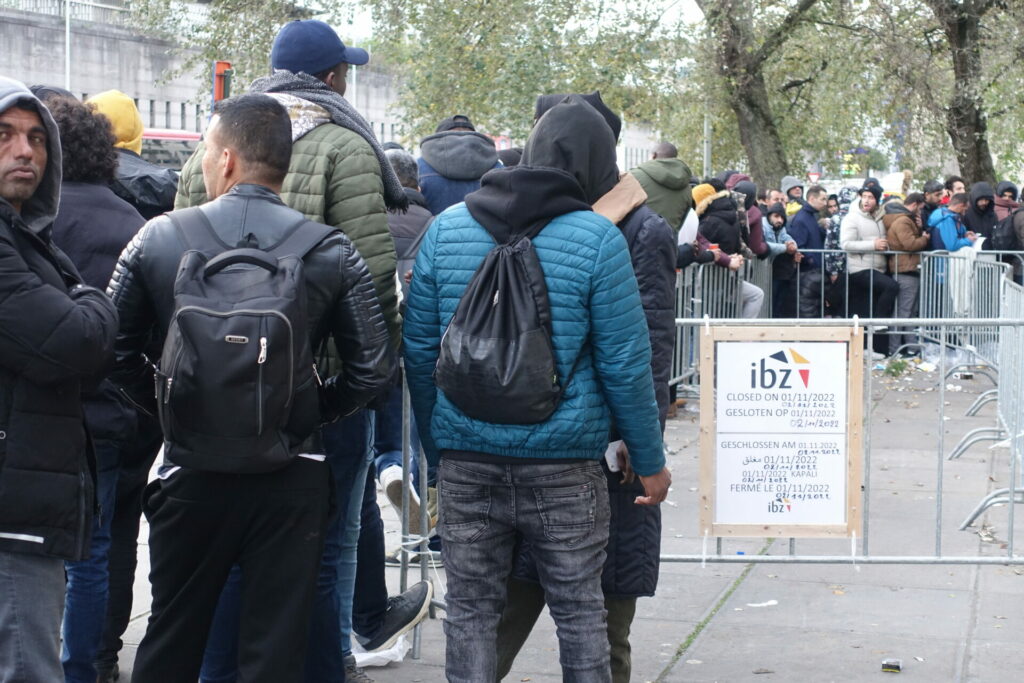The Federal Government is looking to take over the Brussels contract to house hundreds of asylum seekers, including in hotels. For almost three years now, the Belgian State's inability to create necessary places in shelters has fuelled an asylum reception crisis.
In a memo to the Council of Ministers, State Secretary for Asylum and Migration Nicole de Moor (CD&V) stated the Federal Government will temporarily house asylum seekers in five hotels and two reception centres. This was reported by local media and confirmed to The Brussels Times by her cabinet.
"The scheme will ensure housing for families and children," her spokesperson said. The hotels and reception centres will house 728 women and children. However, before the plan enters into force, the proposal must still be approved by the Federal Government 'in current affairs'. De Moor hopes to get the green light from the Federal Council of Ministers by 5 July at the latest.
Continuing contracts
However, this does not mean new places are being created, instead, it is a continuation of existing places. "This proposal concerns shelters that were previously rented by the Brussels Government for homeless shelters," de Moor's spokesperson said. The Brussels-Capital Region already accommodates 650 people, mainly families with children, in various locations, including in (former) budget hotels.
The region concluded contracts with the Federal Government in 2022 to take over the reception of some asylum seekers and later entered into contracts with several budget hotels to create additional reception places. However, the contracts with those hotels expired on 17 June, and de Moor has argued the State should take them over.
"Those locations will help us accommodate the many families with children who have arrived in our country in recent months," she said on Radio 1. "If we don't do that [ed. take over the contracts], these people today risk having to leave the reception places with no alternative. We want to avoid that at all costs."
The Federal Government will pay for and manage this capacity – with a price tag of €8.4 million, which according to de Moor is less expensive than regular reception – in cooperation with Belgium's Asylum Reception Agency Fedasil and the Red Cross. However, de Moor's spokesperson added that the necessary funding for this will come from budgets already provided, meaning there is no demand for additional funds.
'Crossing line'
The decision is unexpected as de Moor's predecessor Sammy Mahdi (now CD&V's party leader) said three years ago that accommodating refugees in hotels is a line that should not be crossed.
The Flemish right-wing nationalist party N-VA, which is currently leading the negotiations to form a Federal Government, has also criticised the decision, arguing it will cause a so-called "pull effect" and lead to more migration to Belgium. However, academics and experts have repeatedly said that "push-pull models" are inadequate to explain migration.
De Moor stresses this is a temporary measure, but currently sees no other choice with the increasing flow of refugees. She added that the number of refugees arriving in Belgium has risen sharply and that if the inflow remains this high, it will become impossible to immediately accommodate all families with children – long considered the priority to receive shelter in the continued crisis – in the Fedasil reception network, as was the case in autumn 2022.
According to de Moor, the government should therefore ensure fewer people come to the country, and again pointed to the recently adopted European Migration pact, which among others foresees "stronger external borders" and "better distribution of refugees between Member States", as the main solution to attain this goal.
However, countless civil society organisations and experts have warned that it is an illusion to think these measures will halt the influx, warning that instead, they will further erode refugees' human rights.

